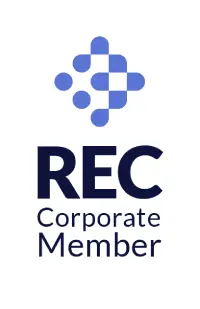The Kingdom may be able to unlock between US$59 and US$63.4 billion in real estate assets through capital markets/REIT funds or sales and leasebacks.
Within the Gulf Cooperation Council (GCC), the Kingdom of Saudi Arabia (KSA) has the largest market. 35 million people are living in the Kingdom, making it the most populous GCC country. All economic sectors, including healthcare, are going through significant structural changes in the nation as a result of Vision 2030. Among the most alluring industries in the Kingdom, the healthcare sector has a plethora of options for private sector operators and investors, thanks to the implementation of several legislative and economic incentives, such as 100% foreign ownership.
Colliers estimates that by 2030, the Kingdom of Saudi Arabia will need about 195,000 better beds. The high cost of land and the lack of funding for capital expenditures, particularly hospital development, remains, nevertheless, two of the key obstacles to the expansion of the KSA healthcare industry. Determining the sector’s inherent value to bolster expansion plans or serve as a substitute source of finance for new initiatives is, thus, the opportunity.
The author emphasized that in order to establish an additional 19,500 beds in the public and private sectors by 2030, an estimated US$32.6 to 34.0 billion must be invested. This amount could be unlocked by selling and leasing back real estate assets in the Kingdom or through capital markets/REIT funds. It is possible to modernize the current hospitals with the $26.4–29.4 billion that is not being used.
Capital Financing
Obtaining sufficient finance is a major obstacle to building high-quality hospitals in Saudi Arabia. Despite actively seeking investments in the healthcare sector in Saudi Arabia, banks and other financial institutions frequently restrict their exposure by working with established market participants who have demonstrated performance. If there isn’t a backup source of cash flows available, foreign or regional companies thinking about joining the KSA market frequently have trouble getting project financing.
The terms that are being offered cause additional issues. Typically, a bank’s risk appetite conflicts with long-term investments like healthcare, which have an average duration of 8 to 12 years. Newcomers to the KSA market, lacking sufficient funds or incapable of committing substantial sums of money for a variety of reasons, finally turn to private investors to sign a license and operating agreement in exchange for a management fee.
As an alternative, operators can establish a Joint Venture (JV) with an investor and construct and own the Operating Company (OpCo) while the investor invests in the Property and Land (PropCo). Operators can choose from the following choices depending on the funding available:
- Purchase of the land outright;
- Long-term land lease agreement;
- Land that the landlord has invested equity in;
- Long-term land lease from landlord/investor, including shell and core structure;
- Forming a joint venture with the landlord or investor in a partnership based on equity;
- Contracting with the investor, developer, or landlord to serve as their manager.
All options, nevertheless, have pros and cons in terms of money, operations, and law, so before making any kind of agreement, operators should consult a specialist. More private sector involvement in the healthcare industry is something the Kingdom is working to promote. There is a substantial amount of investment needed.
Additional Read: Saudi Arabia Achieves WHO’s Top Regulatory Maturity Level
Healthcare REIT
It serves as a means of financing the expansion of KSA’s capital market and healthcare initiatives. Healthcare developments are legitimate asset classes in and of themselves despite the fact that they are typically seen as social infrastructure. Local bourses and traditional real estate have provided individual investors and regional funds with limited opportunities due to the persistently turbulent and often unstable economic environment.
Funds and individual investors seeking new investment opportunities have always been drawn to healthcare initiatives backed by the strong demand demographics. Investment opportunities in healthcare have, of course, decreased along with liquidity. The healthcare industry has grown significantly over the past few years and is still one of the few that changes in the overall economy have not negatively impacted. Some see these industries as “recession-proof” because of their apparent resistance to economic cycles.
Healthcare assets are typically viewed in many institutional worldwide markets as conventional “defensive (inflationary) plays” with modest but stable yields. Benefiting the MENA area, these sectors continue to offer returns that would typically be classified as opportunistic while maintaining their standing as a relative haven.
More private sector involvement in the healthcare industry is something the Kingdom is working to promote. Still, there is a substantial amount of investment needed.
SALE AND LEASEBACK: Over the past several years, many facility owners who wish to grow their businesses have found that this is an option. By extracting value by selling and leasing back the real estate asset into a PropCo, these operators can expand their operations while still owning their facilities.
Following a standard 25-year lease arrangement, the PropCo or asset would ultimately be sold mostly to institutional investors. Retail investors are not able to take advantage of these opportunities, though, because the investment requires a substantial sum of money—typically between $50 and 70 million for a hospital with 100 beds—and can only be accessed by a large family house or an institutional investor. According to Colliers, raising additional REIT capital is one method to bridge the necessary investment gap.
REIT funds in the Kingdom have the potential to unlock property values between US$59.0 to 63.4 billion from the private sector, according to Colliers estimates. This could significantly contribute to the growth of the healthcare industry.
Additionally, a larger pool of possible investors is created by the unitization of the physical assets. Because REITs will give investors more accessibility, transparency, and diversity when it comes to local real estate, the Kingdom’s economy and capital markets are anticipated to profit from their expansion.
Additionally, retail investors seeking steady income streams from real estate assets are anticipated to benefit from it. The physical asset unitization also broadens the pool of possible investors, drawing in fresh funding sources.
Additional Read: The Future of Nursing in Saudi Arabia: Aligning With Vision 2030
Conclusions and Funding Requirements by 2030
For developers, investors, and operators, the healthcare industry in Saudi Arabia presents a number of profitable prospects, particularly in the private healthcare sector. But there are also a lot of drawbacks to it, like high startup costs, trouble finding good medical professionals—especially nurses—and financial limitations for new providers. With the provision of crucial capital investment to finance the required new hospital by 2030, the private sector and capital markets/REITs can maintain their major role in the expansion of the healthcare industry.
In order to support several market participants in their expansion goals, Colliers’ healthcare team works with them to either grow their current brands or draw foreign companies to the area. A Joint Venture (JV) with an investor and REITs, or OpCo / PropCo, are examples of developing funding solutions that Colliers is helping some market participants with. Colliers also provides classic funding choices, including debt and equity.
Wrapping Up
In conclusion, there is a need for creative approaches to healthcare finance because the Saudi Arabian healthcare system is going through major changes. By exploring unconventional methods, such as public-private partnerships and value-based care, Saudi Arabia can create a sustainable healthcare system that provides high-quality care to all its citizens.
By offering healthcare staffing solutions that satisfy the demands of Saudi Arabian healthcare providers, we at Dynamic Health Staff play a critical role in this process. With our expertise in healthcare recruitment and management, we can help healthcare providers navigate the changing landscape of healthcare finance in Saudi Arabia and ensure that they have the qualified staff they need to provide high-quality care to their patients.
We also recognize the value of diversity and cultural awareness in the healthcare industry. We can help you as a healthcare provider find staff who are not only qualified but also culturally competent and able to provide care to a diverse population. By partnering with us, you can focus on what you do best – providing high-quality healthcare – while leaving the staffing and management to the experts.
To know more about our services contact us at +919810017608 or enquiry@dynamichealthstaff.com. We’ll assist you every step of the way. Subscribe to our newsletter to stay up-to-date with the latest industry trends and news.
Contact us today: Dynamic Health Staff!






